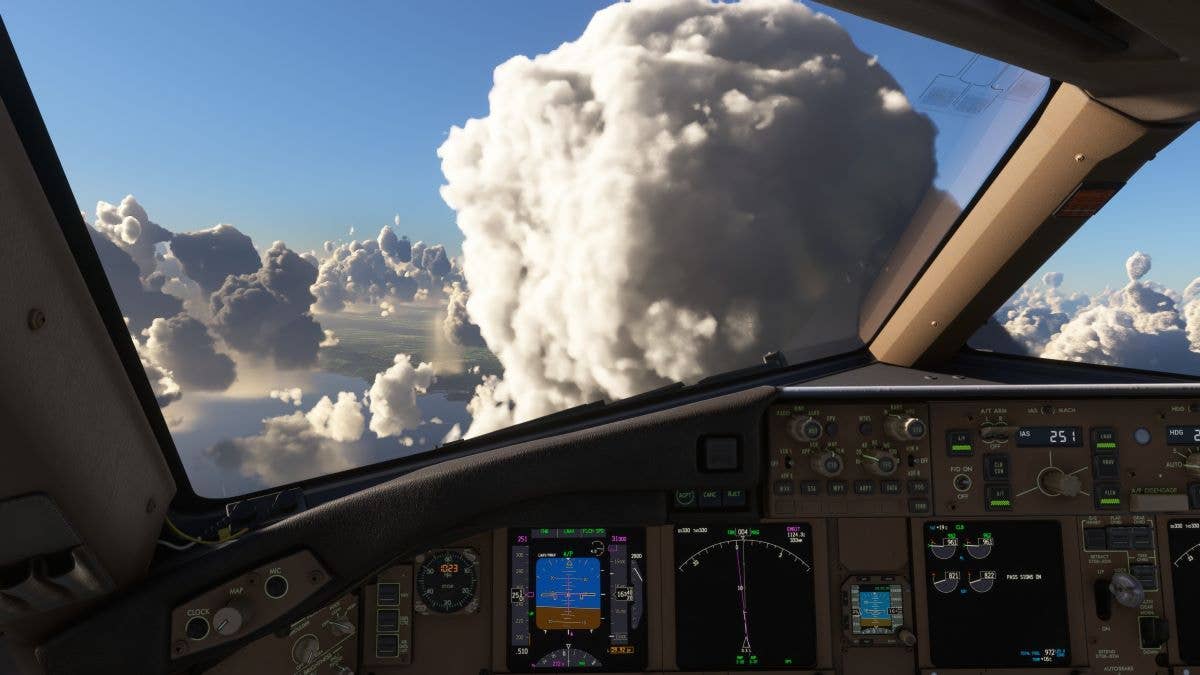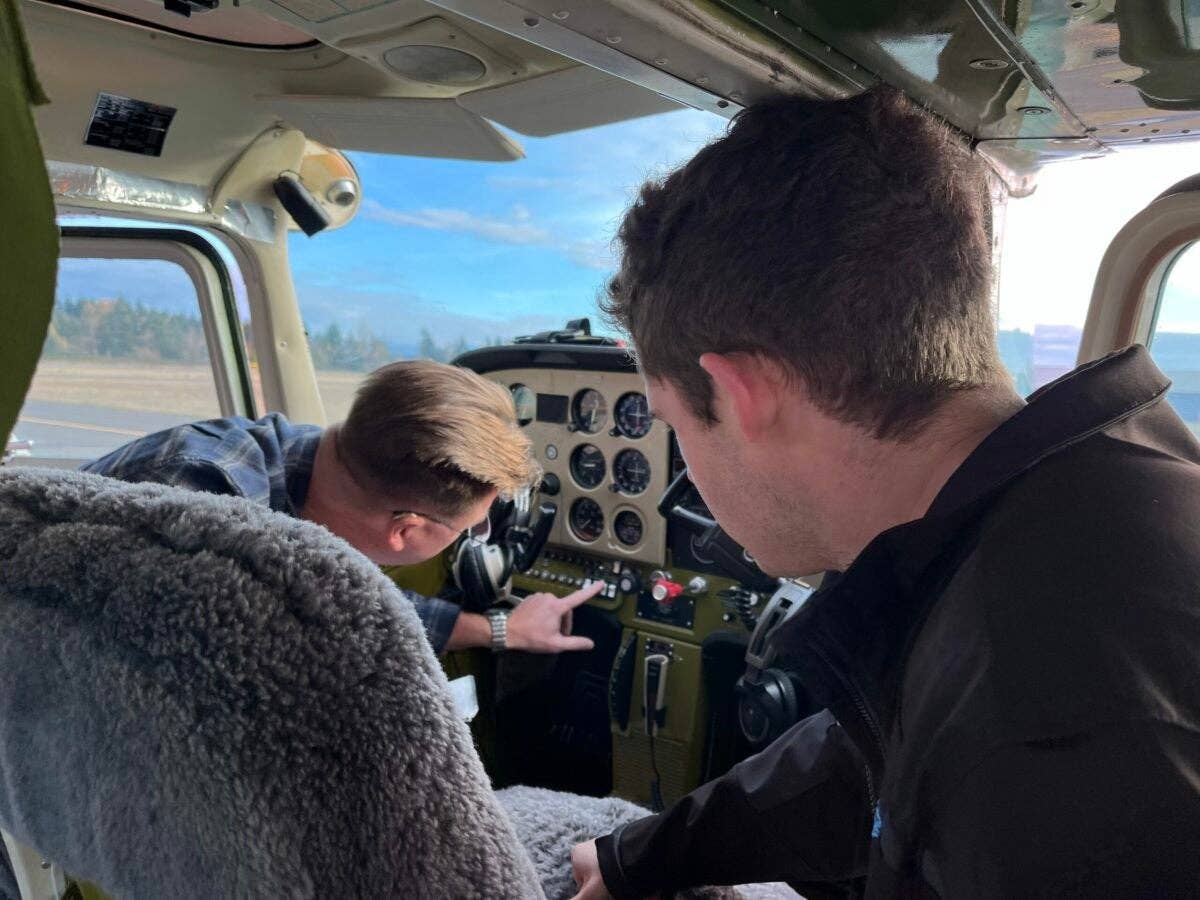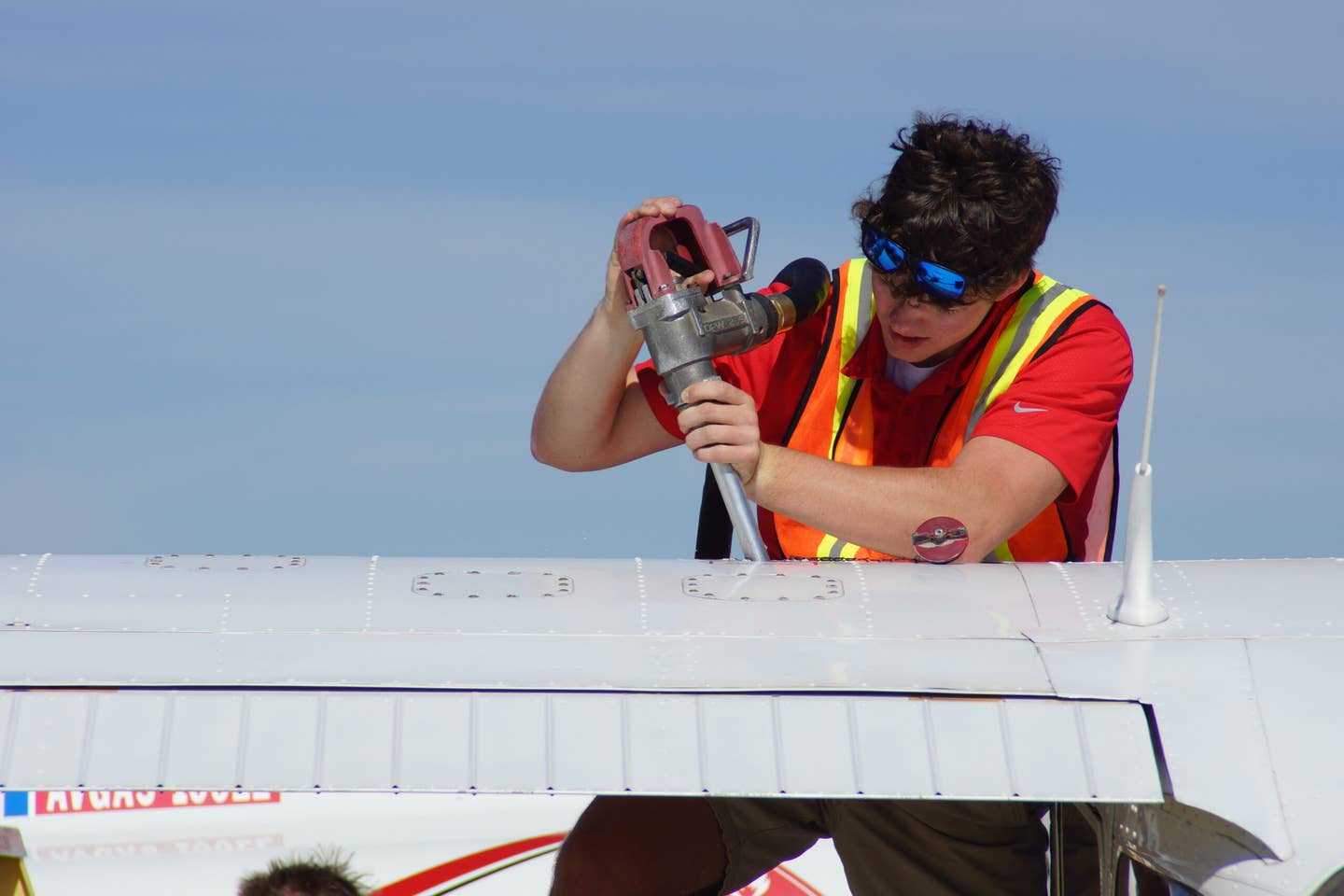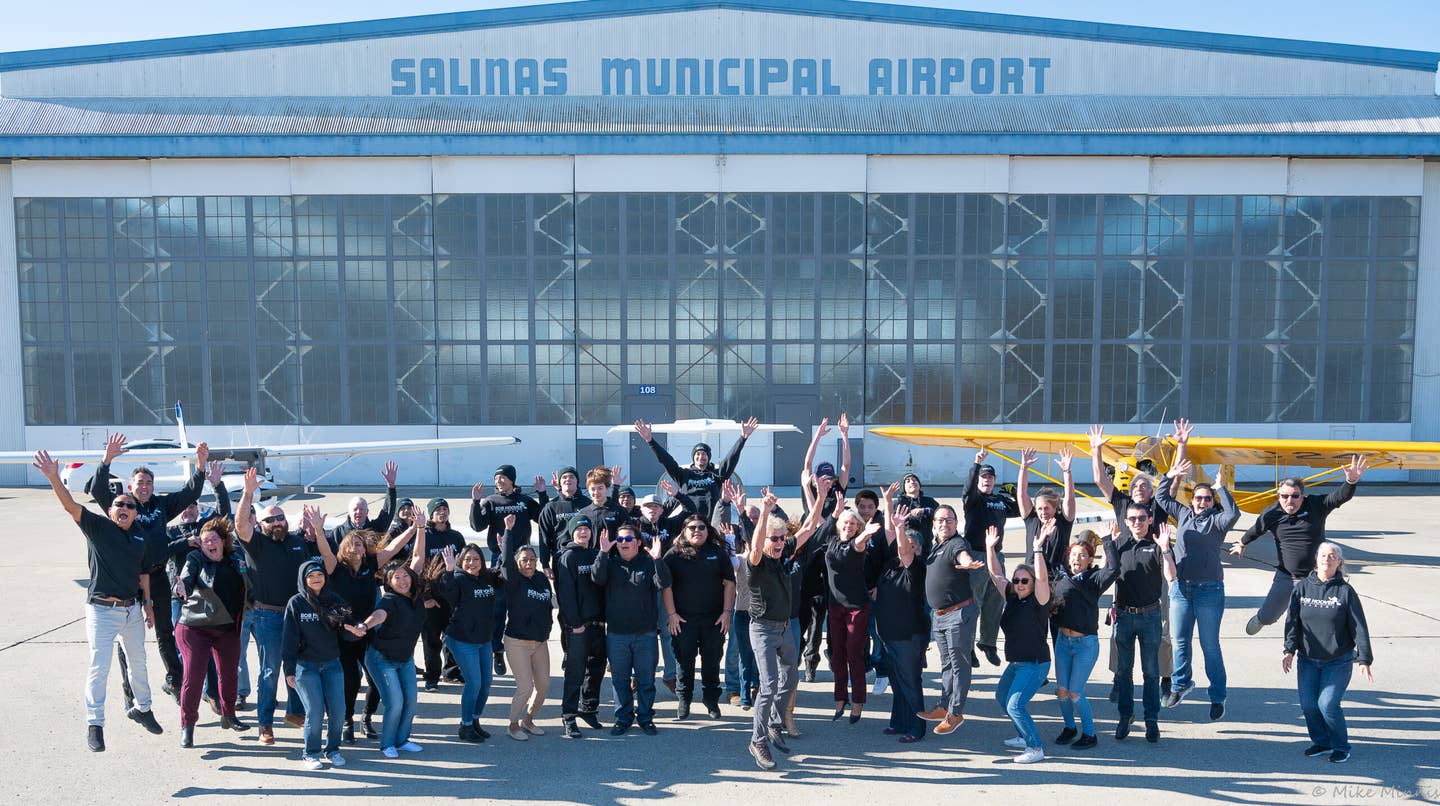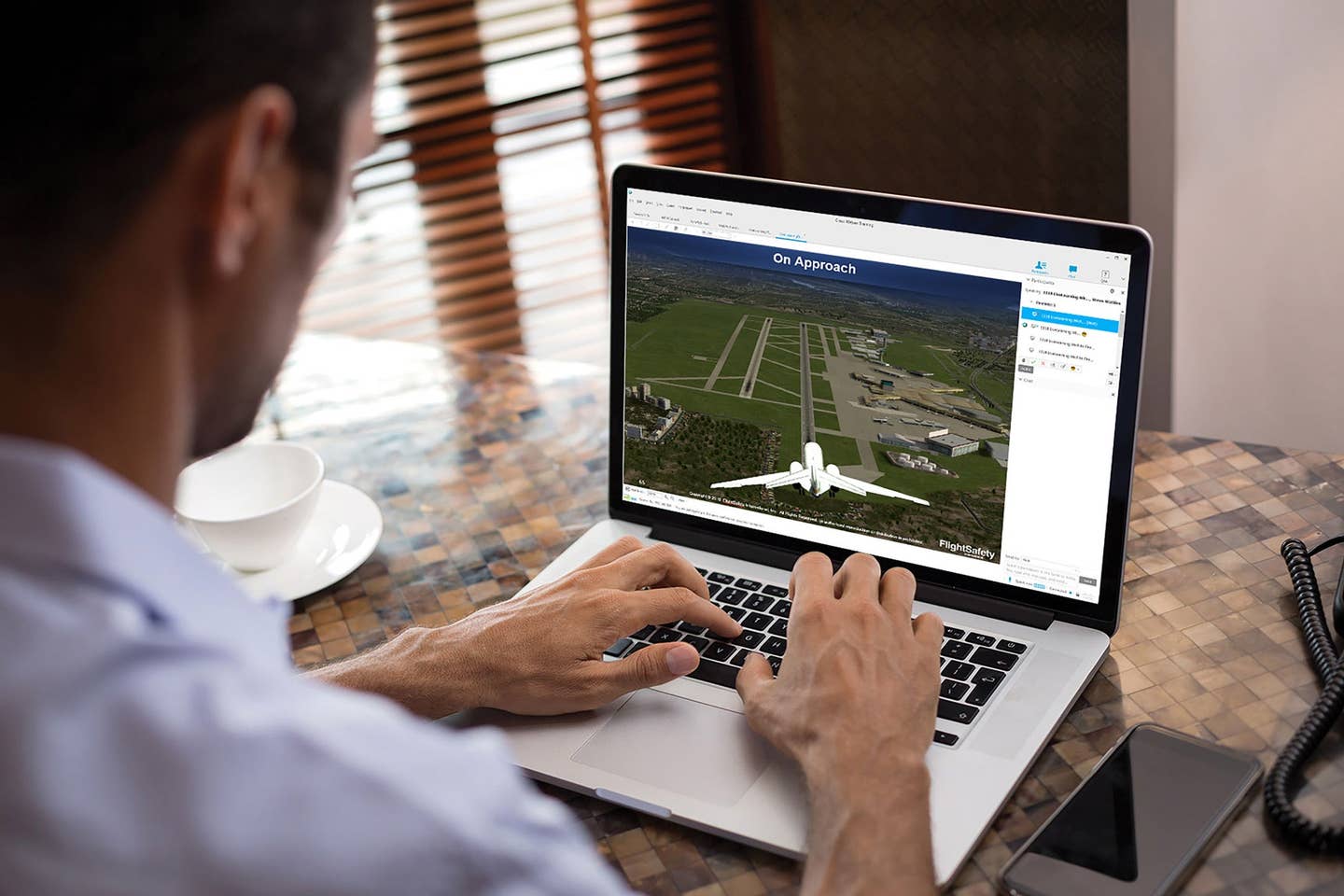Father’s Day Flights and How to Make the Most of Them
Here are a few things to remember for when you’re flying with family.

The author and her father. [Courtesy: Meg Godlewski]
With Father’s Day coming up, flight schools are bracing for an influx of intro flights for dads. You probably know someone who always wanted to fly, but life got in the way, so now his kids and spouse are making it possible for dad to take to the air, if only for one day.
Sometimes, if dad likes it enough and has the resources and time, it can lead to earning a certificate. Dad may not enroll in flight school immediately, but he may return to it later in life when the kids are grown and no longer his financial responsibility. I’ve had many learners who come in for lessons years after the intro flight. That’s how much of an impression that flight can leave on a person.
If you're a pilot, a flight with your father may be on tap. I highly recommend this, as one of my most cherished memories is the one and only time I was able to take my dad flying. I was a private pilot, with a whopping 210 hours and Dad was a freshly retired aerospace engineer. We lived in different states so visits were once a year at best. Dad had always dreamed of being a pilot, but Uncle Sam needed him to build things to put into space, so he didn't get the chance. He lived vicariously through me.
We were flying in the Cessna 152 I took my check ride in. I had been warned by more experienced pilots that I had to assert control right off the bat when flying with a parent because (and this came from a parent) they tend to still see their adult children as children. You may feel confident in the cockpit but in the back of their mind they remember the time when you were 16 and you confused the clutch for the brake as you pulled into the garage and took out Dad's new 10-speed bicycle.
To guard against this I began the passenger briefing with "Dad, I am pilot in command [PIC] on this flight. I am not your daughter. I am not 15 years old, and you are not teaching me how to drive."
Dad was a military man (think Captain von Trapp from Sound of Music the movie and turn it up five notches). and he was amused by the confidence I portrayed.
Pick Your Day and Time Carefully
Smoothest air is generally best when you take a nonpilot up in a small airplane. I prefer early morning flights because the cooler air means less bumps, and usually there isn't a lot of air traffic to compete with.
You may want to be conservative with your weather minimums as well. While you may be able to handle a direct crosswind of up to 15 knots, it might frighten your passenger when you put the airplane into a slip during the approach to landing.
- READ MORE: How to Build Confidence Along With Hours
Real-world tip: Tell your passenger what you are doing as you do it: "This is called a slip. It's a way to descend and keep the longitudinal access of the airplane lined up on the runway..."
You may find it useful to have the passenger wait inside the terminal while you do the preflight inspection of the aircraft. They will likely ask questions, and that can be distracting. If you are interrupted during the inspection, pause and back up three items on the checklist.
Don't skimp on the safety briefing. Remind them you are PIC and that they need to keep their feet away from the rudder pedals and not touch the controls. Show them how to adjust and lock in their seat, then shimmy around to make sure it is locked in.
Demonstrate how to put on and take off the seat belts and how to adjust them, and how to latch and unlatch the door. Advise how to use the analog clock pattern to call out traffic.
Advise that when there is a radio transmission, all talking in the cockpit must cease and that you will hold up your hand to indicate that they must be quiet.
When briefing rapid egress of the aircraft, I use "unscheduled off-airport landing" as in "In the event of an unscheduled off-airport landing..." Let them know after egress to meet you behind the aircraft. If the aircraft has a fire extinguisher, point to it and make a reference to using it in the unlikely event we encounter hostile spiders in the aircraft. Never say "crash" or "fire" because that's all they will hear.
- READ MORE: Flying in the Time of Cicadas
Try to pick a route that will interest your passenger. Show them the route on the sectional or TAC you are using. I flew us over the military bases in the area—specifically Bremerton Naval Shipyard, where, at the time, the USS Missouri was berthed. We then went over Bangor Submarine Base. This was well before the 9/11-inspired prohibited area was created, and we were able to get a good look at the submarines, including one that was on the surface heading into the sound. As we flew along the coastline of the sound, Dad pointed out the locations of the old Nike missile sites he helped build during the Cold War.
Pro tip: If possible, fly the route ahead of time with a different passenger. This helps you fine-tune the flight so you know what altitudes are best, what radio calls you will need to listen for or make, whether flight following is a possibility, etc.
Do not be in a hurry. Savor this time with your family. And take lots of photographs. You'll be glad you did.

Subscribe to Our Newsletter
Get the latest FLYING stories delivered directly to your inbox

